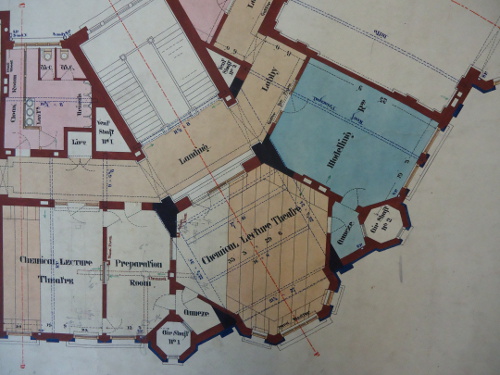Have a wonderful Bank Holiday weekend!
Don’t forget that the University Library will be closed on Monday (26 August)!
Don’t forget that the University Library will be closed on Monday (26 August)!
JSTOR for images: 2024 update Thursday 22 August from 4 pm BSTExplore how to use Artstor’s high-quality collections and key functionality in their new home on JSTOR. Join this free webinar for an update on the latest time-saving features and …

If you are researching the history of the University, the City or any other aspect of local history, don’t forget to check out the University Archive, which brings together records and objects from the current university, its predecessors and associated organisations all the way back to 1869 as well as housing the Landau collection bequeathed by LGBTQ+ author, sculptor and academic Prof. Rom Landau.
As a university student, you can get 10% off Oxford University Press e-books when you buy them directly from the publisher.
We are lucky enough to have local artist and Senior Teaching Fellow in Nursing at the University of Portsmouth, Simon Holliday is displaying two imaginative exhibits of his imaginative work, both related, either directly or indirectly, to the local landscape. Come see them in all their glory on the first floor landing!
Art of Glass is probably best described as a body of sculptural work which I’ve been constructing using found objects. The project is born out of my habitual tendency towards beachcombing. In particular, this tendency to collect objects of interest from the shoreline around Hampshire.
Simon’s photographic exhibition, the Serenissima of the South Coast, describes a walking tour of Portsmouth as a city in decline.
It seems like a simple task to determine the wealth of countries but the experience of living in a country is influenced by many other factors. Being wealthier matters a lot less if everything you have to buy also costs more, while a country where you have the same spending power but work fewer hours would likely ive you a better quality of life than you might expect otherwise. And that’s before we move onto the question of who gets to enjoy the wealth created.
ArtSTOR is no more but its collections are now completley searchable within JSTOR. Please update your bookmarks and other links.
The first Outside In World drop-in and storytime was a great success. Several families joined us to celebrate South Asian Heritage Month and explore the collection of children’s books from around the world and explore the world of illustration with two of our MA Illustration students and aspiring children. Everyone got to take part in the colouring exercise or read fascinating children’s books from around the world, followed by the storytime with another of our students. Sign up and join us for the next one on the afternoon of Friday 9 August!
On a hot day towards the end of June I was excited to be able to visit Dennis Maps, the largest printer of paper map products in the United Kingdom. The company produces more than two million maps and charts …
Happy South Asian Heritage Month, everyone! You can find some fascinating resources on South Asia in our local collections.
Don’t forget about the South Asian Heritage Month themed Outside In World collection drop-ins and children’s storytimes taking place on 31 July and 9 August. Book your place now!
We look forward to seeing you soon.